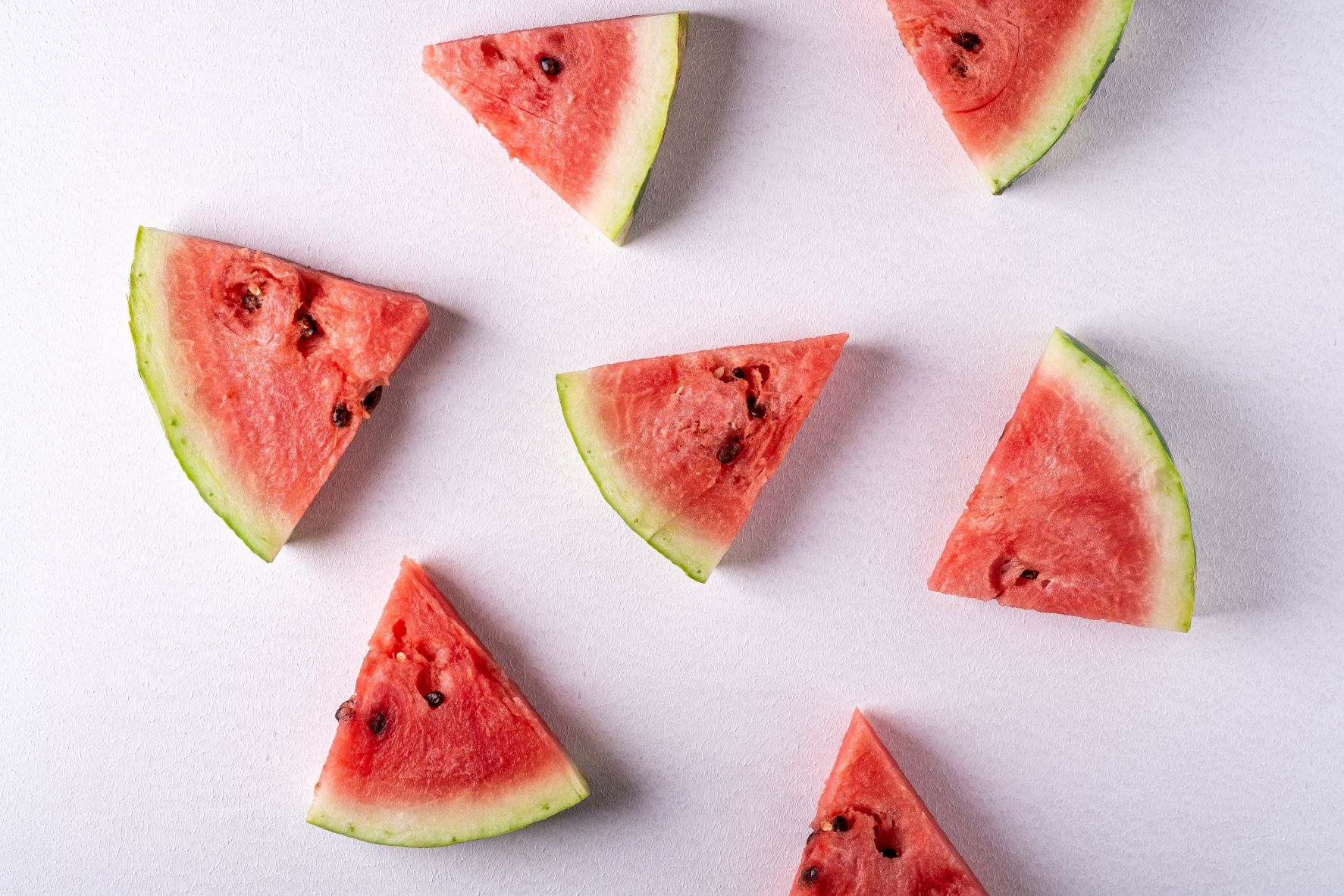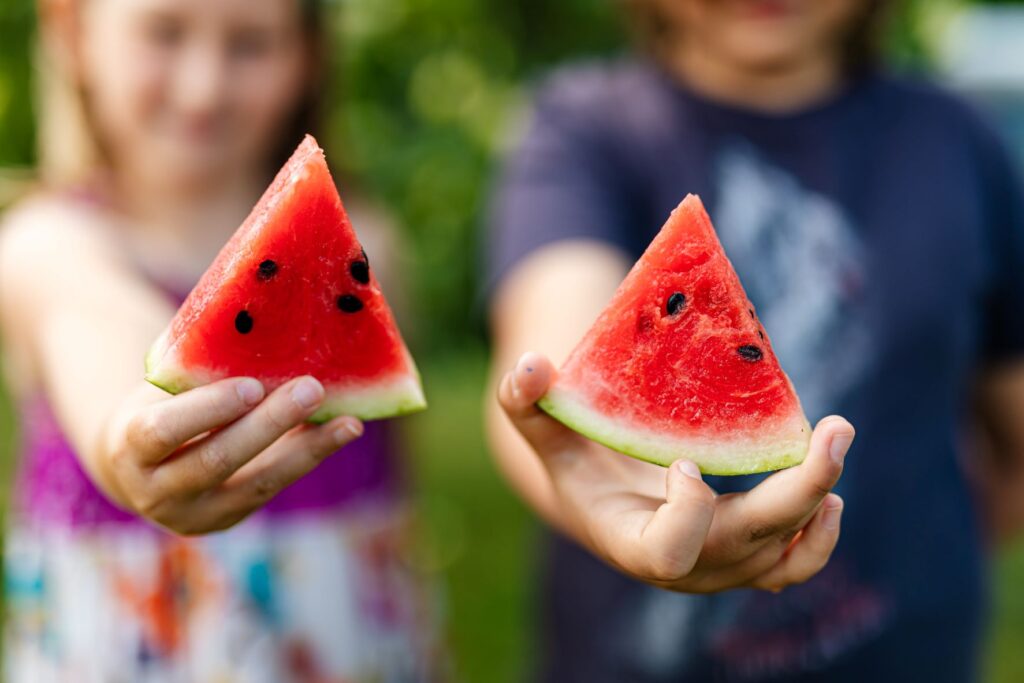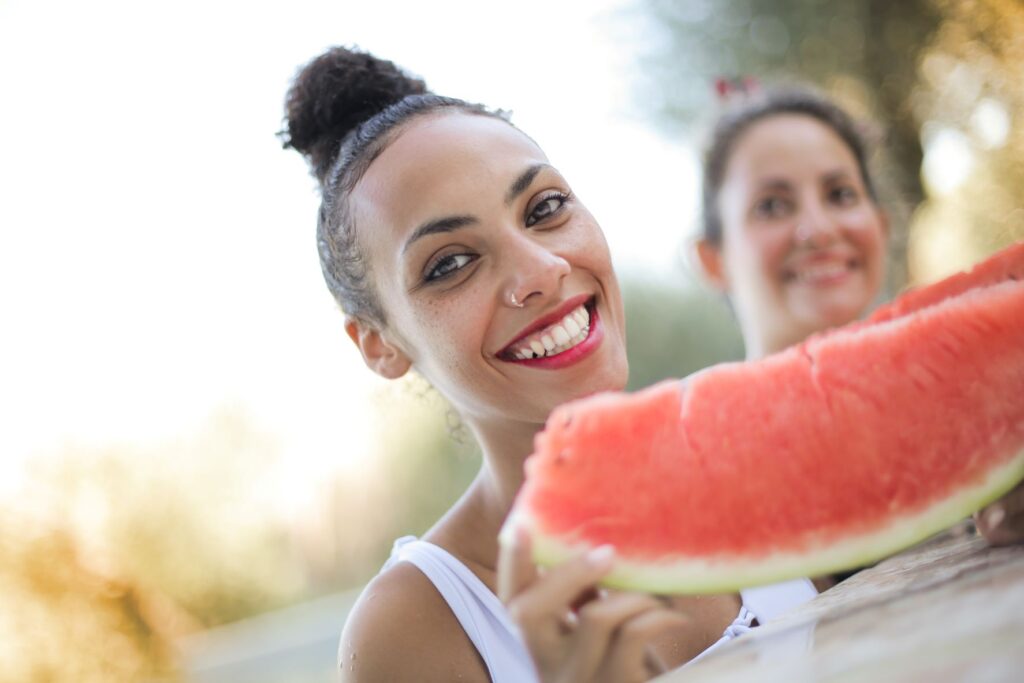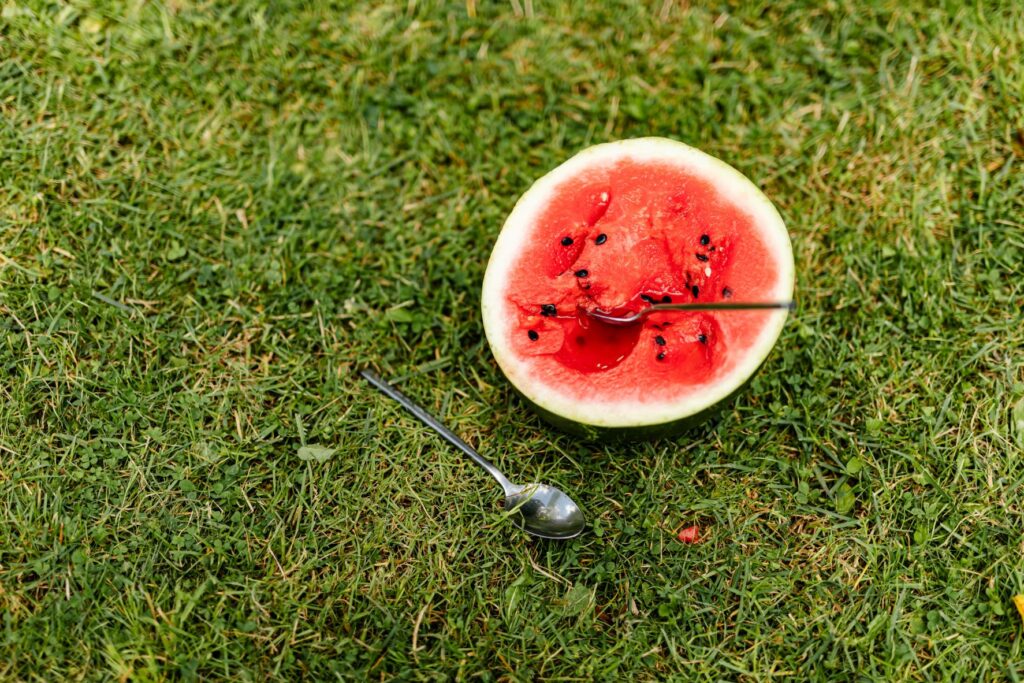
What are the nutritional benefits of watermelon? According to nutritionists, watermelon is an excellent fruit to include in a diet that is focused on health because it is low in calories and sugar while also being loaded with vitamins, minerals, and antioxidants. Plus, it’s a lot of fun to chew on! Check out the watermelon nutrition facts below:
- 45.6 calories in one cup.
- 0.2g of fat.
- Zero cholesterol.
- 1.52mg of sodium.
- No fiber at all.
- 10mg of calcium.
- 170mg of potassium.
- Approximately 12g of carbohydrate.
- 865IU of Vitamin A.
- 12.3mg of Vitamin C.
- Approximately 7,000 micrograms of lycopene.
There are approximately 30 calories in watermelon slice! There 12g of carbs in watermelon 1 cup. Because it is low in calories and sugar, you can consume multiple servings of watermelon each day without worrying about the long-term effects of your diet. There is no need to count calories when eating watermelon.

Nutritionists say that those who have diabetes or who may need to calculate their servings of carbohydrates should also pay attention to the amount of watermelon they consume. Eating an excessive amount of fruit could introduce an excessive amount of sugar into your diet, leading to blood sugar fluctuations. These fluctuations can be dangerous for individuals who have diabetes.
What are the major benefits of eating slices of watermelon for your health?
Essential nutrients
When it comes to the amount of nutrients it contains, watermelon is a powerhouse. It also has a wealth of other vitamins and minerals, including potassium, vitamin A, and vitamin B6. Additionally, it contains approximately 15% of your daily vitamin C requirement.

Vitamin C helps the body absorb iron and also works to strengthen the immune system, while vitamin A is essential for maintaining healthy skin and eyes. Additionally, watermelon is a good source of the minerals potassium and vitamin B6, both of which help the body break down the proteins that are consumed and also boost the immune system and nerve function respectively. Potassium is known to help lower blood pressure, and vitamin B6 is known to support nerve function.
It keeps you hydrated
The majority of a watermelon’s structure is made up of water. Watermelon, as its name suggests, can help you stay hydrated. People usually get 80 percent of the hydration from what they drink, and the rest 20 percent from what they eat. Watermelon is believed to help with this balanced intake. The majority of adults do not drink enough water, despite the fact that maintaining proper hydration levels is especially crucial during the summer months, when temperatures tend to rise and you may lose fluids through sweating.

After a strenuous workout or when you have been perspiring for an extended period of time, individuals are recommended to consume watermelon that has been seasoned with a pinch of salt for it has a synergistic effect.
Smart weight management
Picking watermelon over another type of sweet snack can help you feel full for a longer period of time. People who substituted watermelon for low-fat cookies in their diet, they experienced a greater feeling of satiety. The consumption of watermelon on a daily basis is related to a reduction in the weight, mass index, heart rate, and waist circumference.
Beneficial for your heart health
Consuming foods rich in lycopene, as shown by research, may lower a person’s risk of developing cardiovascular disease and stroke.
How long does it take for watermelon to grow after flowering?
It reaches full maturity after a period of about three months of growth. During the first two months of the plant’s life, it will sprout new leaves, grow vines, and produce flowers. The actual fruit won’t start to develop until the very last month of the plant’s growth cycle.

How long does it take for watermelon to digest?
When it comes to the rate of digestion of fruits, watermelons are the most efficient, as it only takes twenty minutes for them to be expelled from your stomach. It will take about half an hour for your stomach to expel its relatives, such as melons, along with other citrus fruits, bananas, grapes, and grapefruit.

Consuming foods that are high in fiber can assist in improving the digestive system’s efficiency.
How to tell which watermelon is good?
Keep an eye out for the yellow spot! When watermelons are allowed to sit on the ground, they develop a splotch there. When this blotch turns a creamy yellow, you’ll know it’s ready to eat. Give it a good thwack to find out what watermelon can you eat: strike the bottom of the watermelon with your hammer. The sound of a ripe one will be low and hollow, which indicates that it is packed full of juice and has reached the pinnacle of its ripeness.


